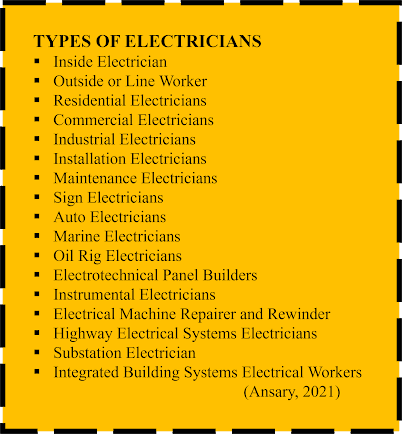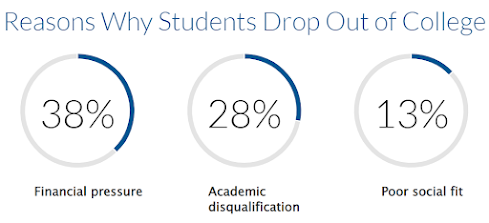Many among us have perpetuated the myth that college is the only path to success. As a parent and a teacher, I confess that I am guilty of this erroneous behavior. I have had countless conversations with young people repeating the same question, “Where are you going to college?” Awkward. Students are annoyed. They give an answer that they think might be acceptable to end the conversation and be on their way.
We have the best intentions but are we practicing empathetic listening with a desire to understand? “Often when people are given the chance to open up, they unravel their own problems and the solutions become clear to them in the process” (Covey, 2020, p. 289). Figuring out for themselves what to do beyond high school is one of those times students can and should find their own solution. If college isn’t the path for everyone, what is the alternative? To this, I reply, “There are many different paths to success.” I will start with one: Becoming an electrician.

When you think of an electrician, do you automatically think of it being a man’s job? “In the United States, 2.4 percent of electricians are women” (
Hannon, 2020). While these numbers are small, being an electrician is a career choice that should be gender-neutral and color blind. Tonya Hicks is the black woman pictured above. She learned all about tools and what they could do working with her uncle. Her role was to hand him the right tools as he fixed cars as an industrial mechanic. While attending college, Tonya was told that there were no opportunities for black women as mathematicians in the Defense Department which was her first dream. She quit college and applied to become an apprentice at her local electrical union. She was the first woman to finish. Tonya worked long hours and learned the trade. At times she was ignored but she persevered. After working for nine different companies, she started her own successful electrical contracting company. Now she works to empower other women. She explains, “Not until you are building up another person are you a true leader” (
Hannon, 2020). Like any career choice, becoming an electrician requires leadership qualities. “Leaders who demonstrate integrity, trust, and respect, serve others with empathy and fairness, and are personally and socially competent” are valued and essential everywhere (
Lumpkin & Achen, 2018, p. 6).
Men
AND women are needed as electricians. One article that was
written by
Thomas Ferrier (2021) shares the basics that are needed to qualify to even think about becoming an electrician:
1. You must be 18.
2. You must either graduate from high school or take the Graduate Equivalency Degree (GED).
3. You must be healthy.
4. You must have a way to get to the trade school of your choosing and to work sites.
5. You must be able to work alone and with others.
6. You must also be able to listen to and implement instructions.
After these basics are met, further requirements on the path of becoming an electrician vary depending on where you live. Typically, you must attend a certain number of classes, get hands-on training while being supervised, and pass a test.
Salary ranges are different and based on which state you practice. Idaho, Vermont, and Florida are among the lowest-paid electricians. New York, Oregon, Alaska, and Illinois are some of the highest-paid. Texas, Maine, Montana, and Utah fall in the middle range.
As an electrician, the types of jobs available include a residential electrician, an industrial electrician, a maintenance electrician, and even an oil rig electrician.
Before you read this, did you even consider an electrician as a career path? Is this interesting to you, your child, your student, or someone you know? For additional information including how long it takes, how difficult it is, the cost, and the location of a school near you
click here and get started today. College is not the path for everyone is my continued message. Becoming an electrician is just one path. There are so many others. If you need someone to talk to about what interests you,
click here for a list of mentors that my followers helped put together last week. Feel free to add to it. Please share my blog with those around you and leave comments below if you have other suggestions for exciting career paths I can share in future blogs. I value your input. #collegeisnotthepathforeveryone
References
Covey,
S. R. (2020). The 7 habits of highly effective people, Chapter
about HABIT 5.
Ferriere, T. (2021, July
8). How to become an electrician: 5 easy to follow steps. InterCoast
Colleges. https://intercoast.edu/blog/become-an-electrician/
Hannon, K. (2020, March 5). In a field dominated by men, she's in charge. The New York Times. https://www.nytimes.com/2020/03/05/business/women-electricians.html
Lumpkin, A., Achen, R. M. (2018). Explicating the synergies of self‐determination
theory, ethical leadership, servant leadership, and emotional intelligence.
Journal of Leadership Studies, 12(1), 6-20.
U.S. Bureau of Labor
Statistics. (2022, March 31). Occupational employment and

















